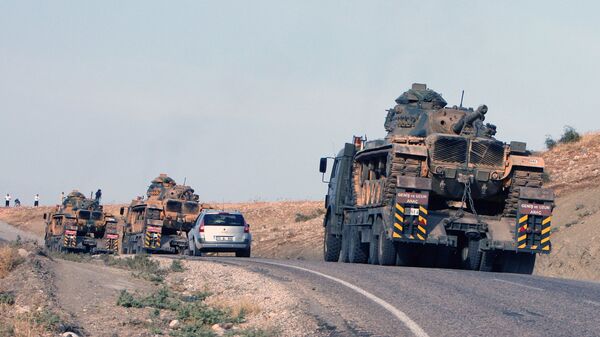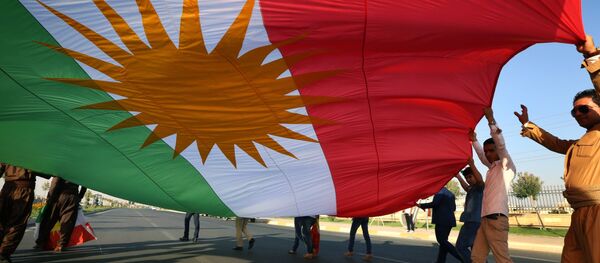Commenting on the on the exercises which kicked off on Tuesday, former Turkish ambassador to Iraq, Unal Cevikoz, told Sputnik that Ankara’s toughened rhetoric was an attempt to keep the country’s Kurds under control and was simultaneously sending a clear signal to the Kurdistan Regional Government in Iraq (KRGI).
“I believe that attempts to thwart the upcoming plebiscite are dangerous and will only add to what is already a very difficult situation. KRGI leader Masoud Barzani said he will not give up on the idea [of holding a referendum] even though Ankara and Baghdad are against it. Russia, the US and the rest of the international community also believe that the referendum is premature, but the KRGI says it will not back off,” Cevikos told Sputnik Turkey.
“We all know that an independent Kurdistan will not appear the day after the September 25 referendum, and that any attempts to prevent it from happening are fraught with serious security threats to the region. What we need is a post-referendum dialogue between Erbil and Baghdad to prevent a crackdown on Turkish Kurds and an increase in tensions inside Turkey,” Unal Cevikoz emphasized.
Abdullah Agar, an ex-Turkish commando and a counterterrorism expert, welcomed the ongoing military drill on the Iraqi border as a sign of Ankara’s desire to pre-empt any “surprise developments” in the region, including the upcoming referendum.
“To prevent any potential chaos developing in the region and the impact it could have on Turkey and its allied communities in Iraq, Ankara is trying to stabilize the situation inside the country and also in Iraq and Syria. We realize that while doing this we could be forced to resort to a military intervention abroad,” Agar noted.
The Turkish armed forces launched a military drill on the Iraqi border ahead of the September 25 independence referendum set by the Kurdistan Regional Government in Iraq and following a stern warning by Turkish Prime Minister Binali Yildirim of “a lightning response to any internal or external threat to our national security.”




